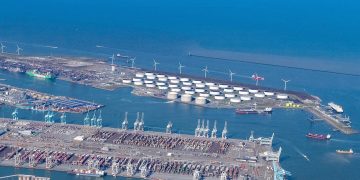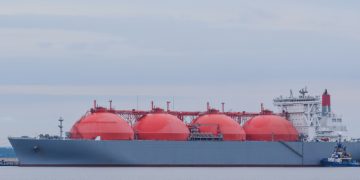Sometimes all you have to do in order to lead people is understand what works best in each scenario. But how can this be done? Luckily, Daniel Goleman has come up with an answer.
Daniel Goleman, a psychologist and best-selling author known for his work on emotional intelligence, introduced the concept of six leadership styles in his 2000 Harvard Business Review article titled “Leadership That Gets Results.” According to Goleman, six core leadership styles exist, each rooted in distinct emotional intelligence competencies. They are most effective in specific contexts and influence the organizational climate in unique ways. These styles are:
#1 Coercive leadership style
The coercive leader demands immediate compliance, operating with the directive, “Do what I tell you.” This style draws on emotional intelligence competencies such as a strong drive to achieve, initiative, and self-control.
It is most effective in crisis situations, to kick-start a turnaround, or when addressing underperforming employees.
However, the coercive approach generally has a negative impact on organizational climate, as it can stifle creativity, lower morale, and foster a culture of fear or resentment.
#2 Authoritative leadership style
The authoritative leader mobilizes people toward a shared vision, inspiring them with the phrase, “Come with me.”
This approach is rooted in emotional intelligence traits such as self-confidence, empathy, and being a catalyst for change. It works best when an organization needs a fresh vision or clearer direction.
Among all the leadership styles, this one has the most strongly positive effect on organizational climate, as it promotes clarity, engagement, and purpose.
#3 Affiliative leadership style
The affiliative leader creates harmony and builds emotional bonds, guided by the belief that “People come first.”
This style relies on empathy, strong relationship-building skills, and open communication. It is particularly effective in healing team rifts, motivating people during stressful periods, or fostering team connection.
The affiliative style has a positive impact on climate, encouraging trust and camaraderie, though it may fail to address poor performance if not complemented by other approaches.
#4 Democratic leadership style
The democratic leader forges consensus through participation and encourages input with the phrase, “What do you think?” This approach is supported by collaboration, team leadership, and strong communication.
It works best when building buy-in, gaining consensus, or seeking input from knowledgeable and committed employees.
The democratic style typically has a positive effect on organizational climate, boosting morale and engagement, although it can slow decision-making when time is critical.
#5 Pacesetting leadership style
The pacesetting leader sets high standards for performance and expects others to meet them quickly, often leading with the unspoken message: “Do as I do, now.”
This style draws on emotional intelligence qualities like conscientiousness, a strong drive to achieve, and initiative. It is most effective when working with a highly competent and motivated team that thrives on high performance.
However, it generally has a negative impact on climate, as it can create pressure, burnout, and low morale if not balanced with support and feedback.
#6 Coaching leadership style
The coaching leader focuses on developing people for the future and often encourages them with, “Try this.”
This style is grounded in developing others, empathy, and self-awareness. It is especially effective when helping an employee improve their performance or build long-term strengths and capabilities.
The coaching style has a positive influence on climate, as it fosters growth, loyalty, and sustainable success, though it requires time and may not suit high-pressure or urgent environments.
Coercive leaders demand immediate compliance. Authoritative leaders mobilize people toward a vision. Affiliative leaders create emotional bonds and harmony. Democratic leaders build consensus through participation. Pacesetting leaders expect excellence and self-direction. And coaching leaders develop people for the future
― Daniel Goleman, explains in Leadership That Gets Results.
| Leadership style | Modus operandi | Style in a phrase | Emotional intelligence competencies | When It works best | Impact on climate |
|---|---|---|---|---|---|
| Coercive | Demands immediate compliance | Do what I tell you. | Drive to achieve, initiative, self-control | In a crisis, to kick-start a turnaround, or with problem employees | Negative |
| Authoritative | Mobilizes people toward a vision | Come with me. | Self-confidence, empathy, change catalyst | When changes require a new vision, or when a clear direction is needed | Most strongly positive |
| Affiliative | Creates harmony, builds emotional bonds | People come first. | Empathy, building relationships, communication | To heal rifts in a team or motivate people during stressful circumstances | Positive |
| Democratic | Forges consensus through participation | What do you think? | Collaboration, team leadership, communication | To build buy-in or consensus, or get valuable input from employees | Positive |
| Pacesetting | Sets high standards for performance | Do as I do, now. | Conscientiousness, drive to achieve, initiative | To get quick results from a competent, motivated team | Often negative |
| Coaching | Develops people for the future | Try this. | Empathy, self-awareness, developing others | To help an employee improve performance or develop long-term strengths | Positive |
The six leadership styles: How they apply onboard a vessel
Leadership at sea presents unique challenges that require adaptable and effective management styles.
According to Captain VS Parani, Vice President – Marine at Tufton Asset Management Ltd., Cyprus, the captain, chief engineer, or a department head are not the only leaders on a ship. Every mariner is a leader! A navigator who executes a collision-avoiding manoeuvre at two in the morning when everyone else is asleep, and one who guides his subordinate through overhauling a purifier – each one of them is a leader.
Understanding how these styles apply onboard a vessel can enhance team cohesion, safety, and performance.
Coercive leadership
Can be used during emergency situations or safety-critical moments, such as fire, collision risk, or equipment failure. The leader gives direct, non-negotiable instructions to ensure rapid compliance and safety.
- Limitation: Prolonged use can lower morale, reduce trust, and limit initiative.
Authoritative leadership
Can be used to set a new direction such as improving safety culture, increasing efficiency, or adapting to new regulations. The leader shares a clear vision and motivates the team to align with it.
- Limitation: It can sometimes be perceived as overly controlling if the leader fails to involve the team in decision-making or overlook their input
Affiliative leadership
Can be used to strengthen team cohesion and support crew welfare, especially after high-stress periods, interpersonal conflicts, or long voyages. The leader focuses on emotional well-being and relationships.
- Limitation: Should be combined with accountability to avoid tolerating poor performance.
Democratic leadership
Can be used when input is valuable such as revising procedures, optimizing schedules, or resolving technical issues. The leader encourages collaboration and values diverse viewpoints.
- Limitation: Can slow processes when quick decisions are needed.
Pacesetting Leadership
Can be used when working with a skilled team to meet high standards under pressure. The leader sets an example through high performance and expects others to follow suit.
- Limitation: Can cause burnout or disengagement if support is lacking.
Coaching leadership
Can be used to develop individual crew members or teams for future roles. The leader provides guidance, feedback, and growth opportunities, often outside urgent operational demands.
- Limitation: Requires time and may not be practical in fast-paced or emergency settings.
Leading toward the future
In conclusion, Daniel Goleman’s six leadership styles provide a comprehensive framework for understanding how emotional intelligence can drive leadership effectiveness. Leaders who master these styles can adapt their approach based on the needs of their team and the context at hand, creating a positive organizational climate and enhancing overall performance.

























































